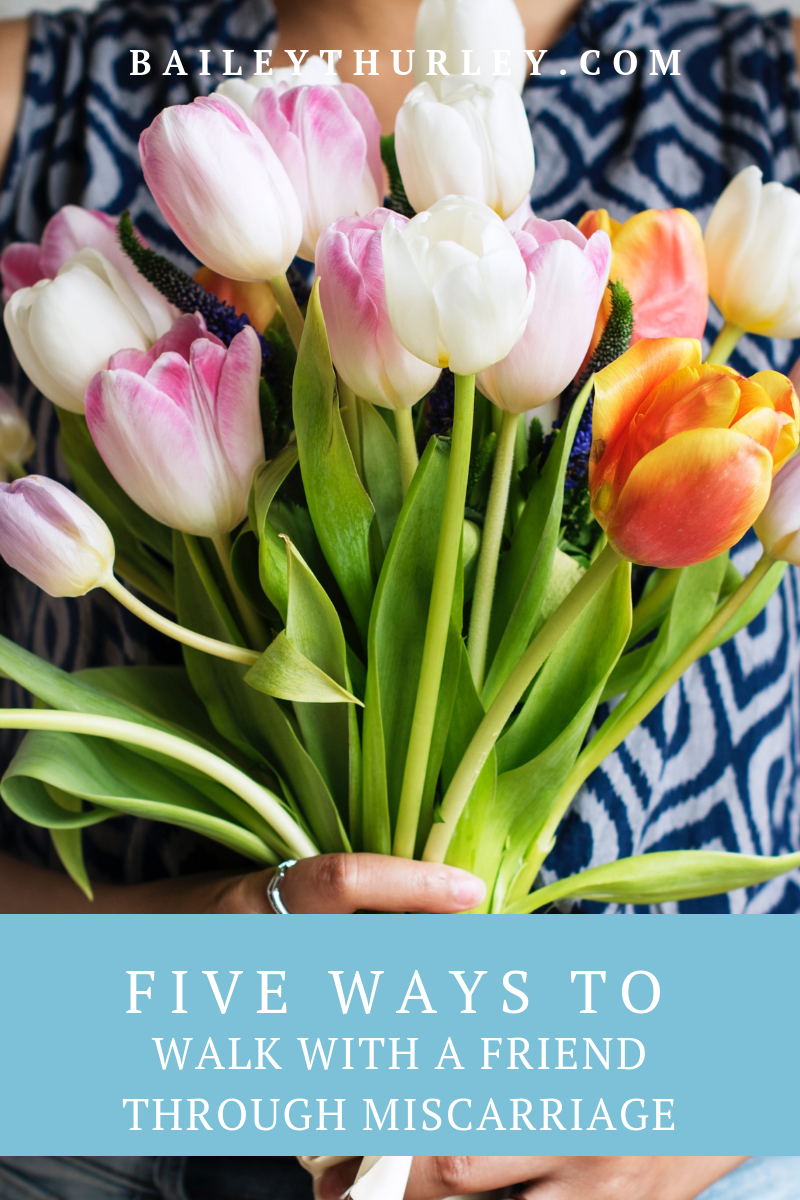First published in Thryve Magazine 2017
I never understood the difficulties of having children or the women who struggled through them until my husband and I had our first miscarriage.
Then our second.
I thought miscarriage was an adult issue that I was way too young to be experiencing. Emotionally, physically, and spiritually my husband and I were confronted with questions as we attempted to understand something that felt unexplainable: Why us? Is there something wrong with me? Is this the start of a very long and painful journey?
I was healthy, strong, and ambitious in pregnancy. I was going to beat morning sickness and fatigue, pour myself into work, train for a half marathon, graduate from Seminary, and do it all looking beautifully bumpy. Losing two children denied me the chance to domineer my own pregnancy. My perfectionist nature was rocked by the fragility of my body. I had no way to control the situation and find comfort from my own efforts.
Forget race training, I needed people to help me verbally process the unexpected brokenness that blew up in my face; to walk alongside me as I navigated questions I didn’t want to ask, and sorrows I wasn’t prepared to cope with. As someone who formerly didn’t know how to relate to women experiencing the loss of a child, I completely understood when friends weren’t sure what to say or how to support us. I want to propose some ways that helped us feel peace so you can care for your friends that suffer a miscarriage by using the “Five Love Languages,” popularized by Gary Chapman.
Physical Touch: Reclaiming Love Over a Broken Body
To be honest, this is on the bottom of my love languages list. Even so, I know that an extension of the hand is an extension of God’s love, particularly during a very physically painful experience.
During both of my miscarriages, I physically felt untouchable. Having someone hold my hand or give me a hug helped redeem my body by reminding me that I am loved, accepted, known.
Touch can restore worth and value to a body that is hurting.
If you are a nervous touchy-feely person like myself, ask permission before you reach out to them. As you walk out the door ask, “Is it alright if I give you a hug?” Your friend won’t be offended, and you will get the chance to love them in a tangible way.
Words of Affirmation: When to Say the Right Things
Inevitably and without trying to, people say hurtful things during a loss of any kind. If you haven’t experienced a miscarriage, it might be hard to know what is “right” to say and when.
When I first lost the baby, I remember people telling me that it was really normal. They would say, “It happens to a lot of women and doesn’t really mean anything about your future pregnancies.”
Is this a true fact? Yes.
But was it helpful during the first week of the miscarriage when it was difficult to look past the next hour, let alone a month? Not really. Miscarriage felt more real than a scientific statistic and very specific to me.
A more helpful response came from a friend who left a card where she had written encouragements. She acknowledged her lack of understanding but reminded me how worthy and loved I was in the eyes of God. If you lack the right words, let God speak encouragement for you through Scripture and see the woman for who she is, not what she has experienced. If you are looking for more ways to understand how to discuss suffering with a friend turn to Timothy Keller’s book, “Walking with God through Pain and Suffering.”
Service: Supporting a Friend in her Vulnerability
The gift of service is a gift that often makes me feel guilty, but it is one of the easiest ways to love someone in need. During both miscarriages, I did not want to admit that I was incapable of doing my day-to-day routine. It feels very vulnerable to need help from others because all I did was lie in bed in the same pajamas for five days. Having a friend around, who allows you to be you, whether strong or weak, is a great gift.
Offering to help a friend during this time might get you the classic response: “Thanks, but no thanks. I’m good.” I say go and serve. Ask. And if they say they don’t need anything, find ways to serve them anyway. Doing the laundry or leaving grocery supplies at the front door are just two ways you can freely serve.
Gifts: Not Just a Teddy Bear, But Mementos
A friend showed up on my doorstep with a bouquet of flowers—not just any bouquet, but a replica of my wedding bouquet. She had taken my wedding photo to a flower shop and asked them to recreate my floral arrangement. Not only was the gift a unique way to make me feel loved, but it also reminded me of a special time. It reminded me of the new family I belonged to with my husband andthe future family we have yet to see. It pointed me back to a firm foundation—the love and hope my husband and I share in Christ.
Give her the gift of remembering her courage to endure.
Rachel Platten’s song “This is My Fight Song” came out during the time of my first miscarriage, and even though it may seem silly, I would belt it out to remind myself of my own strength. Offer to take your friend out for ice cream and sing this song at the top of your lungs or do a fun activity that allows her to feel like her.
Quality Time: Showing Up
Being is one of my favorite love languages.
My husband and I scheduled an appointment a week after our trip to the ER to confirm the report. I remember looking forward to some closure, but also dreading hearing the doctor tell us that it was all over. Three friends dropped by the day before just to be with us. Sometimes we brought up the appointment, but mostly we just talked about life. I felt comforted knowing people were steps away from our crumbled spirits, supporting us without focusing solely on the upcoming appointment.
During my second miscarriage, my employer gave me some time off to process and heal. I felt lonely hanging out in the house all day with nothing but the Gilmore Girls to keep me company. But Lorelai and Rory were confided to the TV screen. Thankfully, I had a friend who also loved Gilmore Girls—and me. She came over and sat in bed with me while we ate pumpkin cookies.
She was just there.
She didn’t need to have an agenda planned or questions for me to process with her. She made herself available with her time. She listened. She acknowledged disappointment.
So I encourage you, your small group, and your family to surround the woman who has suffered a great loss. One does not need to overanalyze or over-theologize the situation. It’s important to see through the present struggle to the heart of the person. Give up your time to commune with the couple, maybe bring a gift or a hug or word of encouragement, or maybe not. Simply showing up in difficult and uncomfortable moments is representing the body of Christ in a loving way; it’s powerful—healing.






Dear Bailey,
Though I’ve never had children or experienced a miscarriage, I appreciate your transparency and wisdom. Using the five love languages is an amazing way to help others who want to reach out to a friend who has grief and loss. Thank you for sharing!
Hope you have a few more tools to reach out to others when this happens!